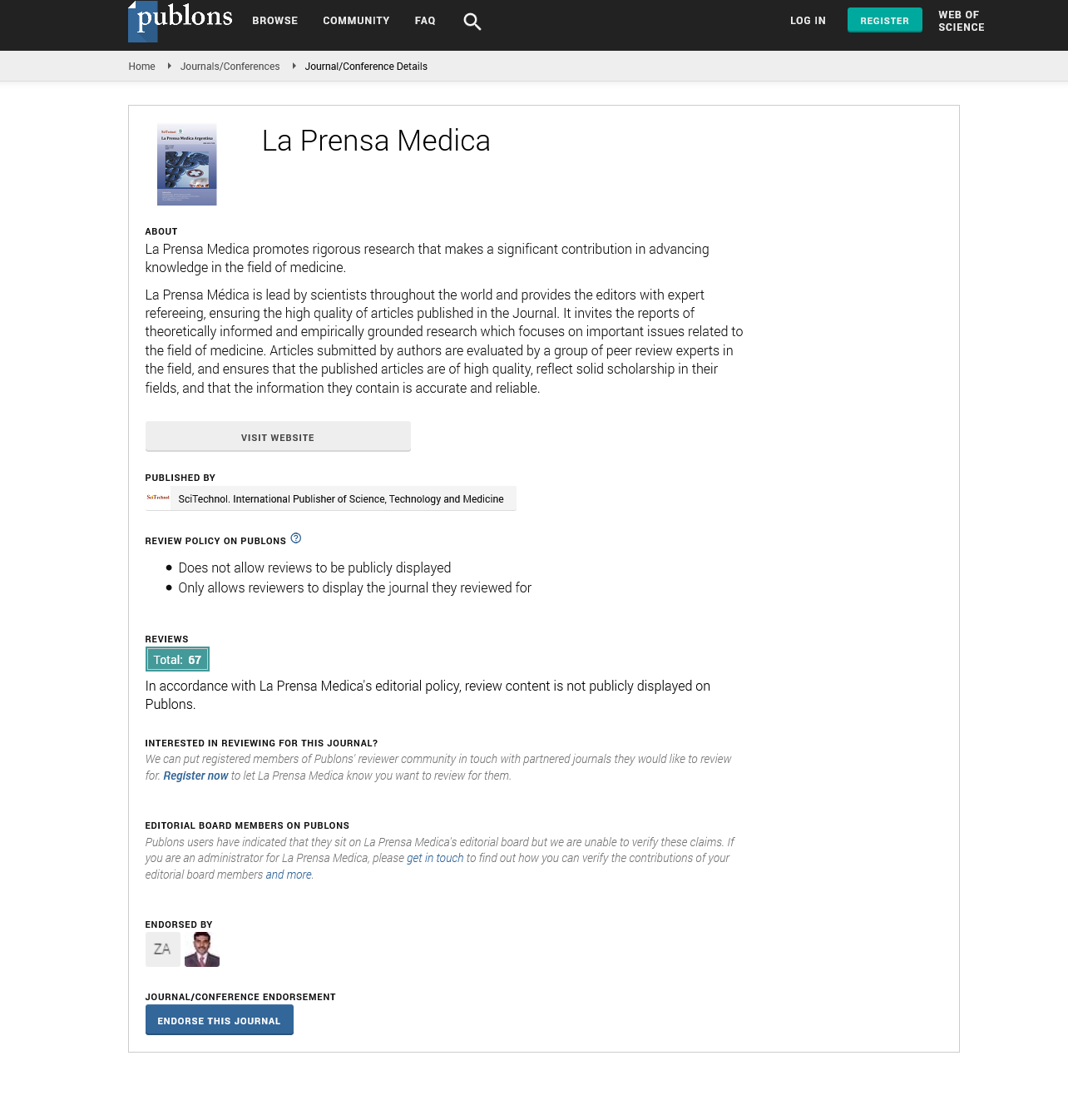Opinion Article, La Prensa Medica Vol: 109 Issue: 1
Advanced Drug Therapy for Rheumatoid Arthritis: A Promising Breakthrough
Kasten Spieker*
1Department of Medicine, Ludwig Maximilian University of Munich, Munich, Germany
*Corresponding Author: Kasten Spieker,
Department of Medicine,Ludwig
Maximilian University of Munich, Munich, Germany
E-mail: kasten.S@med.unimuenchen.
de
Received date: 28 March, 2023, Manuscript No. LPMA-23-100452
Editor assigned date: 31 March, 2023, PreQC No. LPMA-23-100452 (PQ);
Reviewed date: 14 April, 2023, QC No. LPMA-23-100452;
Revised date: 21 April, 2023, Manuscript No. LPMA-23-100452 (R);
Published date: 28 April, 2023, DOI: 10.4172/0032-745X.1000149
Citation: Spieker K (2023) Advanced Drug Therapy for Rheumatoid Arthritis: A Promising Breakthrough. La Prensa Medica 109:1.
Abstract
Description
Rheumatoid Joint Inflammation (RA) is a persistent immune system problem that fundamentally influences the joints, causing irritation, torment, and solidness. A crippling condition can essentially influence an individual's personal satisfaction. With the introduction of cuttingedge drug therapies, medical science has made significant progress in the treatment of rheumatoid arthritis over time. By focusing on the underlying causes of RA, these cutting-edge treatments are revolutionizing the treatment of the condition. In this article, we investigate the headways in cutting edge drug treatment for rheumatoid joint pain and their capability to assisting the patient around the world.
The development of natural treatments may have been one of the most significant advancements in Rhemuatoid Arthritis treatment. In contrast to conventional disease-modifying anti-rheumatic medications (DMARDs) natural treatments target explicit atoms or cells associated with the fiery cycle. They slow down the progression of the disease by suppressing the immune response that causes joint damage.
TNF inhibitors are a class of organic treatments that have been at the front of RA treatment. These medications, like infliximab, adalimumab, and etanercept, explicitly target TNF, a key cytokine engaged with the incendiary fountain of RA. By killing TNF, these medications successfully decrease irritation, ease torment, and work on joint capability. In clinical trials, TNF inhibitors have demonstrated remarkable efficacy, resulting in significant improvements in symptoms and disease progression for many patients.
IL-6 inhibitors, such as tocilizumab and sarilumab, have emerged as another promising class of biological therapies for RA. IL-6 is a proinflammatory cytokine that plays a crucial role in the pathogenesis of RA. By blocking IL-6 receptors, these drugs effectively dampen the immune response and alleviate the symptoms of RA. Clinical studies have demonstrated the efficacy of IL-6 inhibitors in reducing joint inflammation, improving physical function, and halting disease progression.
A newer class of targeted RA treatments are JAK inhibitors. Tofacitinib and baricitinib are two medications that work by inhibiting Janus kinase enzymes that are involved in the signaling pathways of various cytokines that have been linked to RA, such as IL-6 and TNF. By interfering with these pathways, JAK inhibitors lessen irritation and reduce side effects. They are an alternative treatment option for patients who have not responded well to other therapies and have shown promising results in clinical trials.
The way for personalized medicine has been paved over by advances in genetic research and our comprehension of the intricate mechanisms of RA. By using genetic profiling, doctors can find specific genetic markers that are linked to disease susceptibility and response to treatment. This data empowers designated treatment determination, guaranteeing patients get the best and customized treatment for their condition. In terms of maximizing treatment outcomes and minimizing side effects, personalized medicine holds great efficacy.
The use of combination therapies is another significant development in RA treatment. Compared to monotherapy, combinations of various drug classes, such as DMARDs and biological therapies or targeted synthetic DMARDs, have demonstrated superior efficacy. Inflammation can be effectively controlled and joint damage prevented by combining treatments, which can have synergistic effects. Besides, they take into account the utilization of lower dosages of individual medications, diminishing the gamble of aftereffects and further developing treatment bearableness.
With the introduction of cutting-edge drug therapies, the treatment landscape for rheumatoid arthritis has undergone a significant shift. Natural treatments, including TNF inhibitors, IL-6 inhibitors, and JAK inhibitors, have changed the administration of RA by explicitly focusing on key atoms and pathways engaged with the infection interaction. By tailoring treatments to each patient and maximizing therapeutic efficacy, personalized medicine approaches and combination therapies further improve treatment outcomes. Millions of people with RA have seen significant improvements in their lives as a result of these advancements, giving them hope for a better quality of life.
 Spanish
Spanish  Chinese
Chinese  Russian
Russian  German
German  French
French  Japanese
Japanese  Portuguese
Portuguese  Hindi
Hindi 

